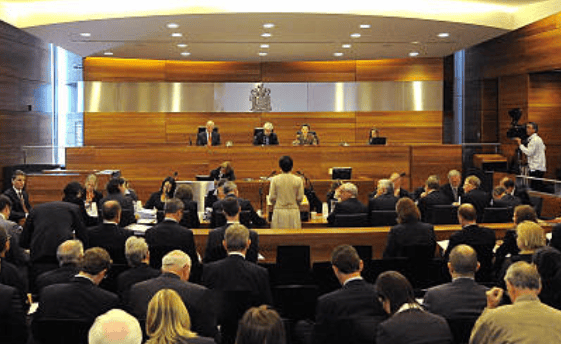The Crucial Role of County Commissioners in Supporting the Sheriff's Office and Detention Facilities
Collaboration with County Commissioners & the Sheriff's Office makes a big difference in more ways that you think.
MODEL AGENCY STRATEGIES


Understanding the Role of County Commissioners in Law Enforcement
County commissioners hold significant responsibilities in supporting and overseeing the operations of the sheriff's office and detention facilities. Their roles encompass a wide range of administrative and budgetary functions that are crucial for the effective functioning of law enforcement agencies. One of the primary duties of county commissioners is to allocate funds and resources, ensuring that the sheriff's office is adequately equipped to maintain public safety. Through careful budget planning and resource allocation, commissioners can directly influence the operational efficiency of detention facilities and law enforcement services.
The collaboration between county commissioners and law enforcement agencies is vital for achieving a coherent and unified approach to public safety. Commissioners must work closely with sheriffs to understand the unique challenges and requirements of their jurisdictions. This cooperative relationship fosters an environment of mutual support, where commissioners can make informed decisions that address the needs of both the sheriff's office and the community. Effective governance and problem-solving are often the results of such partnerships, which aim to enhance the overall safety and well-being of the public.
Moreover, county commissioners play a critical role in policy-making and oversight. By staying informed about the latest developments and challenges faced by the sheriff's office, commissioners can advocate for policies and practices that promote efficient law enforcement and detention operations. This includes addressing issues such as staffing, training, and infrastructure improvements. Commissioners' decisions can significantly impact the effectiveness of local law enforcement, highlighting the importance of their involvement in these matters.
In conclusion, the role of county commissioners in supporting the sheriff's office and detention facilities is multifaceted and indispensable. Their administrative and budgetary responsibilities, combined with the necessity for strong collaboration with law enforcement agencies, underscore the importance of their position in maintaining public safety. By being well-informed and proactive, county commissioners can ensure that their decisions lead to more efficient and effective law enforcement and detention operations, ultimately benefiting the community they serve.
Building a Strong Relationship Through Hands-On Experience
The role of county commissioners extends beyond mere governance; it necessitates a profound understanding of the operations within the sheriff's office and detention facilities. Immersing themselves in the daily routines of corrections officers allows commissioners to gain valuable insights into the multifaceted challenges faced by these law enforcement professionals. By dedicating at least an hour during a shift with a corrections officer, commissioners can cultivate a deeper empathy and awareness, paving the way for more informed decision-making.
One of the primary benefits of this hands-on approach is the establishment of a solid foundation for effective collaboration. When commissioners witness the complexities and demands of a corrections officer’s role, they are better equipped to make decisions that genuinely address the needs and concerns of these front-line workers. Understanding the intricacies of inmate management, security protocols, and administrative responsibilities can help in formulating policies that support the operational efficiency and safety of detention facilities.
Moreover, this initiative can bridge the gap between policymakers and law enforcement personnel, fostering a culture of mutual respect and trust. Commissioners who have firsthand experience in a detention environment are more likely to advocate for necessary resources, improved working conditions, and better overall strategies. For instance, in a case study from Jefferson County, a commissioner who spent time shadowing corrections officers was instrumental in securing funding for advanced training programs and upgraded facility infrastructure, which significantly enhanced the operational capacity of the detention center.
Additionally, engaging directly with corrections officers can reveal critical insights into the systemic issues that may not be apparent from a distance. This proximity can lead to the identification of innovative solutions and best practices that can be replicated across other jurisdictions. The commissioner-officer collaboration serves as a powerful tool for driving change and ensuring that both policy and practice are aligned towards the common goal of maintaining a secure, efficient, and humane correctional environment.
